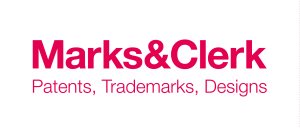Content author by Simmi Mangat, Patent Agent, Marks & Clerk
It’s an exciting time to be in Ottawa again! You can feel the energy at all the entrepreneurship events in the nation’s capital.
At the turn of the last century, Ottawa was a high-tech superpower with telecom giants such as JDS Uniphase, Cognos, Mitel, and Nortel. In 2002, however, Nortel’s share price dropped below one dollar and 65,000 of the global workforce of 100,000 were laid off. Grim days indeed.
Fast-forward to 2018 where the telecom giants make way for a vibrant startup community spawning the likes of Shopify and Klipfolio. From bright, young talent to former Nortel engineers re-inventing themselves (think InstantPot™), it is easy to see why Ottawa is on the cusp of having a world-class tech ecosystem once again. Startup Genome’s 2018 Global Startup Ecosystem Report states that Ottawa’s startup ecosystem is gaining steam.
Throughout the events we attended this year, entrepreneurs were very enthusiastic about discussing their exciting projects and eager to secure funding. There was, however, seldom mention of intellectual property (IP). Thoughts about IP are just not on everyone’s priority list. This attitude must change as there is so much benefit to be had from IP, and here’s why.
Market Value of IP

Protecting one’s IP from the outset is vital, and these aren’t simply words from an IP professional. A 2015 Forbes report stated that up to 80 per cent of public companies’ market value now lies in their IP and intangible assets. One of the best examples of this was in 2011, when a consortium of companies including Apple, Microsoft, Sony and RIM bought a large portion of the bankrupt Nortel patent portfolio for $4.5 billion! As so much of a company’s market value lies in their IP, entrepreneurs need to protect their IP right from the start.
Marketing
It is common knowledge that marketing professionals use IP, especially trademarks, as tools for brand protection. Further, marking products with utility and design patent numbers can provide a sales boost as it is often an indication of improved technology. A 2007 study found that on average patented products and services generate 50% more return than unpatented ones!
Competitive Advantage
Obtaining IP can act as an insurance policy to prevent competitors from copying ideas (enforce IP to protect first mover advantage, maintain exclusivity, recover damages/profits). Likewise, as IP filings are generally available to the public, reviewing competitors’ IP can ensure that entrepreneurs are not inadvertently infringing on another party’s IP. Furthermore, reviewing competitors’ IP can indicate what direction a competitor is moving into and investing in.
Lots of benefits to IP
In addition to the advantages of IP listed above, there are numerous other benefits:
- Licensing intellectual property can result in income through royalties, thus providing a steady revenue stream
- Protect reputation
- IP can increase competitiveness in export markets
- Improve chances of securing investment (many venture capitalists look for an IP portfolio before investing with entrepreneurs and small-to-medium enterprises (SME)
- Prevent lawsuits (bargaining chip)
- Improve chances/quality of liquidity (business acquisition, IP sale, IPO)
- Formalize the process of capturing, securing, and exploiting the intangible results of creativity, innovation and skill.
 Despite all these great benefits, why is it that IP is not in the collective mindset of most Canadian entrepreneurs and startups? One main reason could be is that it is mostly the IP professionals who are touting the benefits of IP. What is needed is an increase in the number of IP champions from industry and government to help lead the charge.
Despite all these great benefits, why is it that IP is not in the collective mindset of most Canadian entrepreneurs and startups? One main reason could be is that it is mostly the IP professionals who are touting the benefits of IP. What is needed is an increase in the number of IP champions from industry and government to help lead the charge.
In the past few years, a number of IP stakeholders have been calling for the government to bring IP awareness to the forefront and develop an IP policy. On April 26, 2018, the Government of Canada marked World Intellectual Property Day by announcing a National IP Strategy. The Canadian government plans to invest $85.3 million over five years to help Canadian businesses, entrepreneurs and innovators understand, protect and access IP through a comprehensive IP strategy. New programs are being proposed such as a patent collective, IP legal clinics and an IP marketplace. We are hopeful too that the government’s IP strategy will also include financial incentives to assist SMEs with expenses incurred when obtaining IP.
According to Startup Genome, the core competencies of a startup ecosystem include: the business cluster of related industries, research centers and institutions of higher education, successful corporations and intellectual property. Ottawa possesses many of these competencies but could benefit from strengthening its IP awareness. This can be done on two fronts. A call to action for entrepreneurs to include IP on their priority list is needed to help ensure their success and a call to action for industry and government leaders to put IP at the forefront is required to increase Ottawa’s footprint on the map of global startup communities.
 Marks & Clerk is one of the world’s leading intellectual firms (IP), with our first Canadian office being established in 1921. With a qualified team of seasoned patent and trademark associates, we offer a full spectrum of technical expertise on all aspects of intellectual property matters – patents, trademarks, designs and copyright. This includes strategic and commercial advice on portfolio management, licensing, enforcement and litigation, and due diligence and valuation of intellectual property.
Marks & Clerk is one of the world’s leading intellectual firms (IP), with our first Canadian office being established in 1921. With a qualified team of seasoned patent and trademark associates, we offer a full spectrum of technical expertise on all aspects of intellectual property matters – patents, trademarks, designs and copyright. This includes strategic and commercial advice on portfolio management, licensing, enforcement and litigation, and due diligence and valuation of intellectual property.
Through a global network of 17 offices in Canada, the UK (across eight cities), Europe and Asia, Marks & Clerk has long-established relationships with other trusted IP firms worldwide and a unique ability to secure IP protection for clients looking to safeguard their innovations in multiple jurisdictions. Our clients come from a diverse range of industries and include start-ups, small and medium sized businesses and large multi-national corporations who have long-trusted us to deliver high quality, seamless and cost-effective services, both locally and globally.






